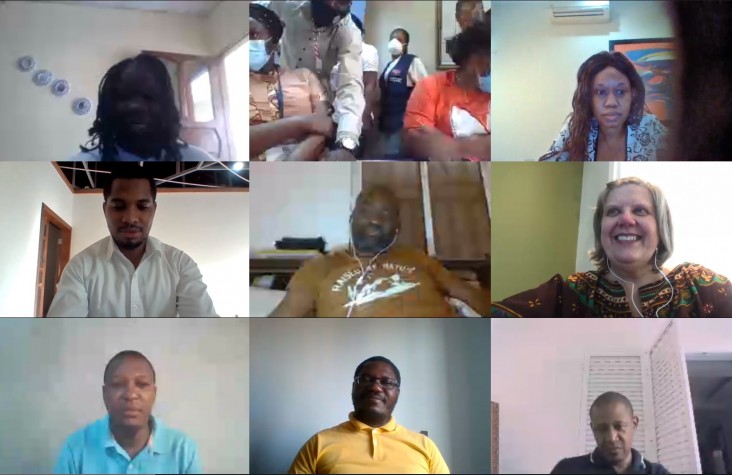Speeches Shim

From February to June 2020, Angola carried out for the first time a remote, on-line quantification exercise to support the transition to Tenofovir Lamivudine Dolutegravir (TLD); the new first-line preferred HIV/AIDS treatment regimen.
Angola’s Ministry of Health approved the transition to TLD in March 2020 to align with the World Health Organization’s HIV treatment guidelines and to fulfil the government’s goals to improve HIV/AIDS services to patients on treatment.
Growing concerns about the COVID-19 pandemic increased the urgency for the quantification exercise to help plan for multi-month dispensing (MMD) of TLD and other commodities. MMD can help reduce the spread of COVID-19 among HIV patients and health care providers by reducing patients trips to pharmacies from monthly to quarterly visits which reduce congestion at pharmacies and health facilities.
New 90-count bottles of TLD will also support MMD implementation. However, implementation of MMD requires careful planning and an initial increase in supply of antiretroviral medicines at health facilities to reduce risks of stock-outs.
The USAID Global Health Supply Chain Program-Procurement and Supply Management (GHSC-PSM) project led the quantification exercise, which included the Ministry of Health’s National Institute of HIV (INLS), National Directorate of Medicines and Equipment (DNME), United Nations Development Programme (UNDP) and PEPFAR implementing partners. DNME is the regulatory entity for new drug introduction, and UNDP is the purchasing agent for the Global Fund and INLS.
Benefits to patients and healthcare facilities will extend long after COVID-19. The transition to new HIV/AIDS treatment regimen and multi-month dispensing aims to increase adherence to treatment, reduce costs for procurement of antiretrovirals, reduce the burden on health care professionals while increasing the time they have to spend with each patient, optimizing storage space and reducing medical waste.
In the coming months, the Ministry of Health, USAID Global Health Supply Chain Program-Procurement and Supply Management and other partners will monitor and measure the actual impact of transition to new HIV/AIDS treatment regimen and multi-month dispensing.
“Together we are stronger and more capable. Although we are passing through challenging times due to the COVID-19 pandemic, everyone demonstrated zeal and commitment to accomplish the goals established, and the results of this exercise will allow us to respond to the country's needs.” - Dr. Lucia Furtado, Director of INLS.

Comment
Make a general inquiry or suggest an improvement.